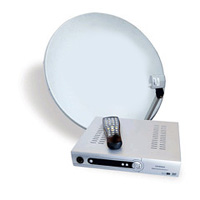GTV's Going Under: Consumers Need Protection

Following the closure of GTV in Uganda without warning, multitudes are still hanging onto their dishes, unable to fathom what has become of the once trusted service provider that had put the giant DSTV to test. As the shock settles to acceptance, it is time Ugandans pushed for a protection body as well as litigation by parliament to ensure that consumers are protected from unfair and deceptive business practices, dangerous products, incorrect scales, questionable products and illegal marketers.
Invoking consumer protection legislation, a government may require businesses to disclose detailed information about products, particularly in areas where safety, authenticity, modality of operations or public health is an issue. Consumer protection is also about agreements and laws that ensure consumers are protected in any transaction. Consumer interests can also be protected by promoting competition in the market and via non-government organizations and individuals as consumer activism.
Due to the absence of strong consumer protection laws, goods and service providers are operating in ways that are strictly profit driven putting less care to consumers who are the core reason for their existence in the first place. Ranging from airlines, telecommunication service providers, hotels to road-side sellers, consumers are suffering the brunt of poor service and defective goods.
 |
| A pay-TV dish and decorder |
Anyone who has used Ugandan matatus must have experienced first hand the worst form of consumer abuse. Fares change depending on the time of day and number of customers at the time. The public service vehicle controllers take advantage of circumstances when consumers lack alternatives.
Telecommunication networks are not doing any better. It is either bad networks, empty promises, irresponsible promotions or faulty mobile phones. Hotels are even worse; a customer walks into a hotel lobby hoping to be received like royalty, only to face rude remarks.
We should force service providers to act responsibly. The initial move should be setting up a public forum for channeling consumer concerns.The body should also be responsible for sensitization of consumers on their rights, public interest mediation, arbitration and or litigation to protect consumer rights. The consumer institution should instigate consumer boycott of goods and services that are questionable and hold monthly press conferences highlighting key consumer concerns of the month. In this context, consumer protection will be consumer driven to encourage value for money service delivery.We should also use online platforms such as blogs, twitters and face book to shame incompetent providers. We can’t sit and watch ourselves get defrauded and treated badly.
With the absence of a specific consumer protection law, cropping consumer associations should get equipped to handle major challenges such as heavy demand for consumer support services, which are in gazillions and may outstrip capacity of the association to cope with. The illiteracy and apathy of majority of consumers may not make matters any better.
Consumers must take caution when procuring goods and services. It pays to early understand the operations of providers and whether they provide value for money and avenues for consumer redress in their sales agreements, should the business shut down. Consumers have every right to receive quality services. It is high time consumers demanded value for their money.
